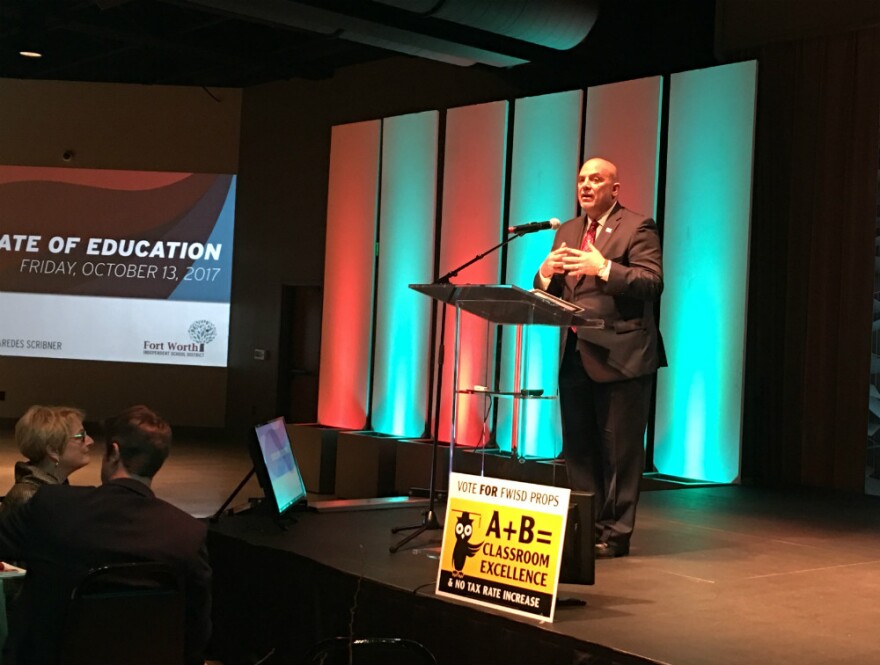In just three years, the Fort Worth School District could have about 4,000 more students than it does today. To help pay for a growing student population, district voters on Tuesday will consider a “penny swap” election and a $750 million bond package.
Penny swap
First, the two-penny swap. It's the more novel election item, and it would raise $23 million a year with no tax increase.
Fort Worth ISD Superintendent Kent Scribner told a lunch crowd recently that the two cents would come from the fund typically used to pay off debts. The money would then be swapped to a maintenance and operations fund to help upgrade elementary and middle schools.
“If a local community wants to invest in its schools initially, the state will more than match it," Scribner said. "The state will reward you for doing that.”
Texas would reward Fort Worth with $8.5 million on top of the $3 million raised in Fort Worth for each of the two pennies in the two-penny swap.
Scribner said the district can afford a two-penny swap because of high property values and a AAA bond rating.
Here's an explanation of the two-penny swap election from Fort Worth ISD:
-S9nY8
Bond package
Then there's the $750 million bond package. It would help buy land for new and growing campuses and modernize some of the district’s oldest, biggest schools.
“The lion’s share of the investment [is] this $580 million,” Scribner said. “Sixty percent of our schools were built before 1960. Our high schools -- Poly [was built in the] 1930s. Arlington Heights [was] built in the 1930s. Tech as well are older high schools that we need to invest [in].”
Scribner called it a responsible bond that fixes and builds on what exists as opposed to building brand new facilities at a higher cost.
For more information on the November elections, check out our voter guide.



